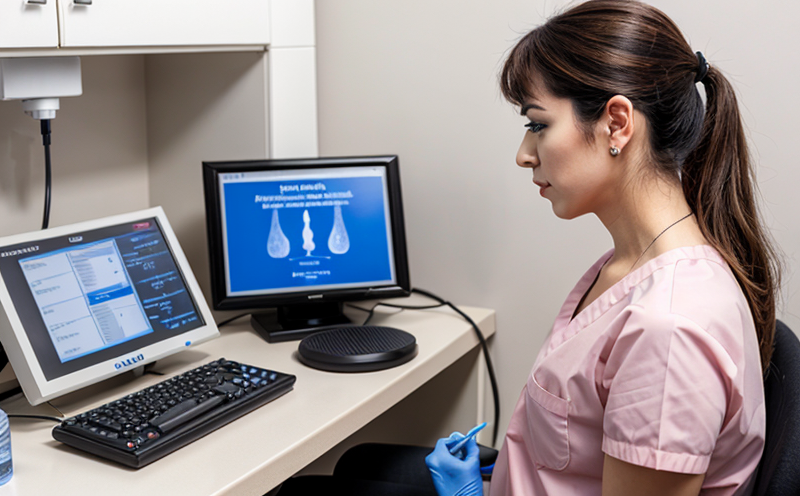Steroid Hormone Metabolism Testing in Livestock
The testing of steroid hormone metabolism in livestock is a critical aspect of ensuring food safety and animal health. Steroids play a vital role in regulating various physiological processes, including reproduction, growth, stress response, and metabolism. Mismanagement or overuse of exogenous steroids can lead to significant health risks for both the animals and consumers.
Our laboratory specializes in providing comprehensive steroid hormone metabolism testing services tailored specifically for livestock. This includes the analysis of corticosteroids (e.g., cortisol), androgens (e.g., testosterone), estrogens, and progestogens. We employ advanced analytical techniques such as liquid chromatography-tandem mass spectrometry (LC-MS/MS) to ensure accurate quantification and identification.
Compliance with international standards like ISO 17025 is paramount for our testing procedures. Our laboratory ensures that all samples are handled under strict quality control measures, minimizing the risk of contamination or degradation. The entire process from sample collection through final reporting adheres to rigorous protocols ensuring reliability and precision.
For accurate results, appropriate specimen preparation methods must be followed meticulously. This typically involves extracting steroid hormones using solvent-based extraction techniques before analysis by LC-MS/MS. Understanding these nuances helps our clients understand the importance of proper sample handling during field operations.
The significance of this testing extends beyond mere compliance; it contributes significantly to enhancing food safety standards and promoting sustainable agricultural practices. By identifying residues early, producers can take corrective actions promptly if necessary. This not only protects public health but also maintains consumer confidence in domestically produced meat products.
We pride ourselves on delivering reliable data that informs decision-making processes within the industry. Our team of experienced scientists provides detailed reports along with recommendations based on our findings. These insights help stakeholders make informed choices regarding feed additives, veterinary treatments, and other interventions affecting steroid hormone levels in livestock.
Industry Applications
Steroid hormone metabolism testing finds application across several sectors within the agricultural industry. Farmers looking to optimize productivity often seek information on optimal timing for administering therapeutic medications or dietary supplements containing steroids. By monitoring natural steroid production rates, they can avoid unnecessary stress on animals and reduce costs associated with excessive medication use.
Regulatory bodies rely heavily upon these tests when enforcing guidelines aimed at preventing illegal administration of performance-enhancing drugs in livestock. Ensuring that all products meet strict limits set forth by governing authorities fosters trust among consumers who demand transparency regarding how their food is produced.
In research settings, scientists studying endocrinological phenomena related to stress responses or reproductive efficiency benefit greatly from precise measurements provided through our testing services. Insights gained can lead to breakthroughs in understanding complex biological systems involved in steroid hormone regulation.
Customer Impact and Satisfaction
Our clients consistently report high levels of satisfaction, largely attributed to the quality and reliability of our testing services. Farmers appreciate knowing exactly what their animals have been exposed to, allowing them to make more informed decisions about husbandry practices.
- Improved animal welfare leads to healthier livestock which translates into better meat quality and taste for consumers.
- Enhanced reputation among buyers who prefer suppliers adhering strictly to regulatory requirements.
The peace of mind provided by knowing that every step in the testing process is conducted according to best practices encourages long-term relationships built on trust. Our commitment to excellence ensures that clients receive not just results, but actionable intelligence they can use effectively.
Use Cases and Application Examples
In one case study involving a large-scale poultry operation, routine testing revealed elevated levels of cortisol in the birds' bloodstreams. Upon investigation, it was discovered that stress induced by overcrowded conditions had led to increased corticosteroid production. Following this discovery, management implemented measures aimed at reducing crowding densities and improving environmental comfort.
A dairy farm underwent similar scrutiny after receiving complaints about udder health issues among its herd. Tests showed high levels of progesterone in the milk samples indicating possible hyperstimulation due to excessive use of ovulatory drugs. As a result, the farm adjusted its reproductive management protocols leading to improved lactation efficiency and reduced veterinary expenses.
These examples illustrate how steroid hormone metabolism testing plays an integral role in maintaining optimal health conditions for livestock while simultaneously safeguarding public health through stringent regulation compliance.
Frequently Asked Questions
- Sample preparation involves extracting steroids using organic solvents followed by purification steps.
- The extracted steroid solutions undergo chromatographic separation before being introduced into a mass spectrometer for quantification.
- We use validated methods compliant with international standards ensuring consistent and reliable outcomes.





